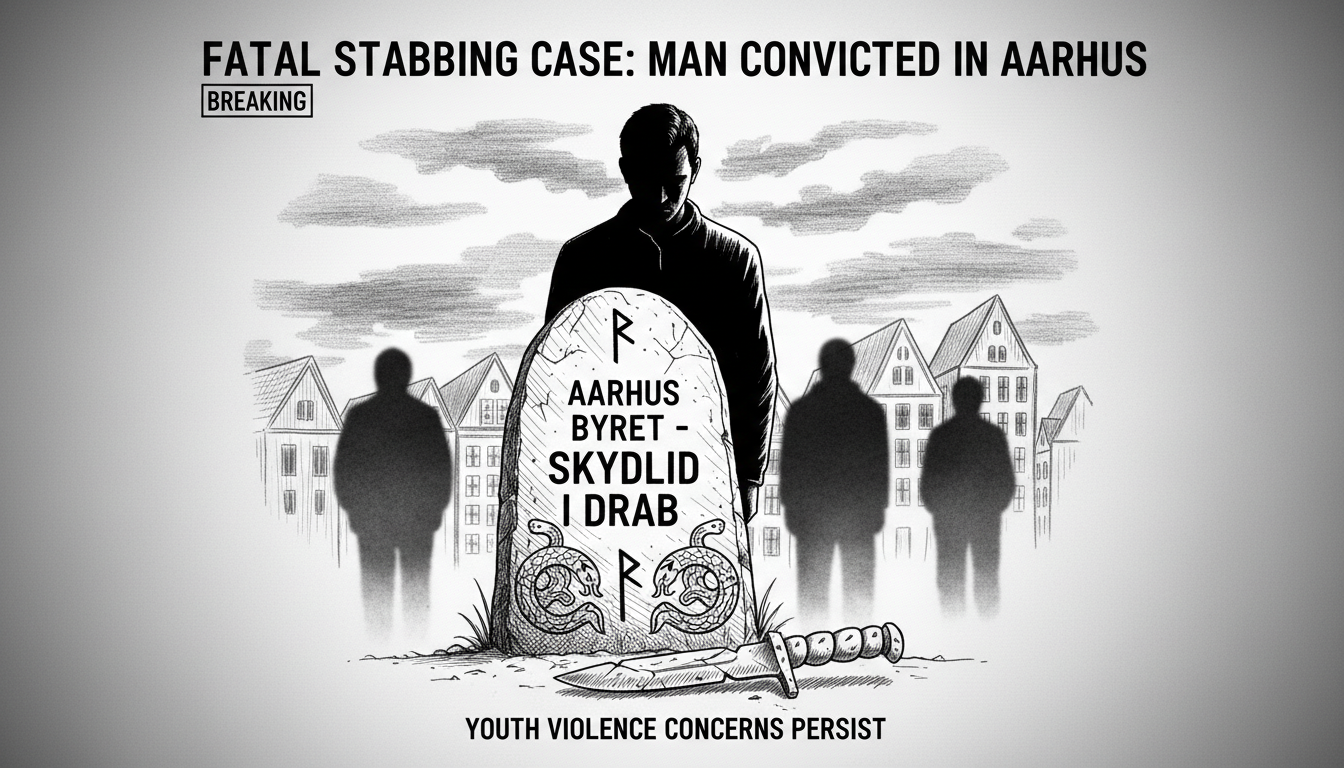A Danish court has convicted a 28-year-old man for a fatal stabbing that claimed the life of a 19-year-old victim. The verdict came down Thursday at the Aarhus courthouse in a case that has gripped the local community. Three other defendants were acquitted of murder charges but found guilty of assault resulting in death.
The violent attack occurred in mid-December on Reginehøjvej in Aarhus N, approximately thirty minutes after midnight. A group of individuals assaulted the young man in front of a residential building entrance. The victim suffered multiple serious injuries during the brutal confrontation.
Court documents describe a horrifying scene where blows, kicks, and knife wounds rained down on the teenager. Medical evidence presented in court revealed devastating injuries including severed arteries in the abdominal region, a shattered shinbone, and a broken hip. These traumatic injuries proved fatal for the young victim.
The legal proceedings began in October and have unfolded through multiple court sessions over recent months. The case represents another instance of youth violence in Danish urban areas, raising concerns about gang-related conflicts and public safety.
Prosecutor Jesper Rubow will present his sentencing recommendations later Thursday. Defense attorneys for the four men will then have their opportunity to address the court before judges deliberate on final punishments.
The prosecution seeks prison terms for all convicted individuals and aims to have three of the men deported from Denmark. This would require one defendant to lose his Danish citizenship, while the two non-citizens face direct expulsion. The fourth man, who holds Danish nationality without foreign background, cannot be deported under current laws.
Danish deportation policies have become increasingly strict in recent years, particularly for violent crimes. The court's upcoming decision on November 28 will determine whether the prosecution's requests for expulsion will be granted. This case highlights the complex intersection of criminal justice and immigration policy in contemporary Denmark.
The tragedy has left the local community grappling with questions about youth violence prevention and intervention strategies. Similar cases in recent years have prompted calls for better social programs and early detection of escalating conflicts among young people in Danish cities.
What does this verdict mean for public safety in Aarhus? The conviction provides some closure but also underscores ongoing challenges with violent crime in urban areas. The upcoming sentencing decision will be closely watched by both community advocates and policy makers concerned with balancing justice and rehabilitation.

